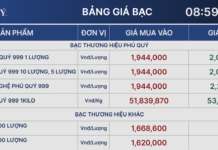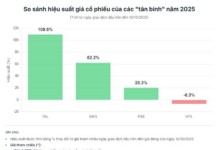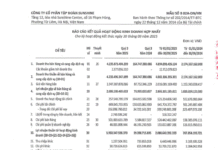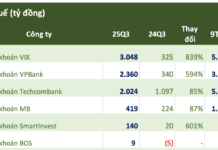1. Proposal to Allow Early Retirement for Those with Excess Years of Social Insurance Contributions
During a workshop to provide feedback on the draft Law on Social Insurance (amended), many trade union officials proposed exchanging excess years of social insurance contributions for the missing years of retirement age of employees.
Accordingly, for those who have excess years of social insurance contributions but are below the retirement age and still wish to retire early, they can still receive up to 75% of their pension without a 2% reduction in the pension ratio for each year of early retirement, up to a maximum of 5 years before the prescribed retirement age.
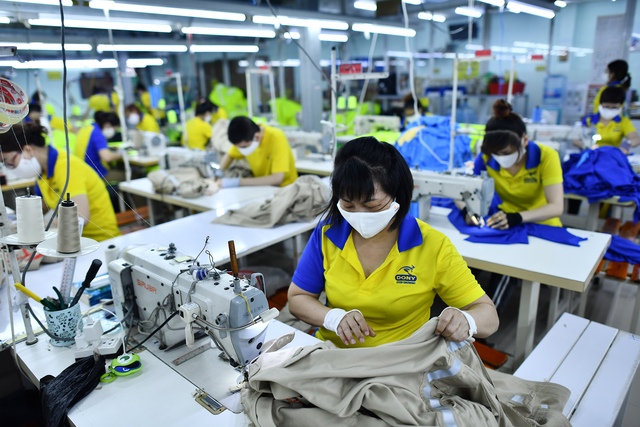
The Vietnam Trade Union has proposed that those with excess years of social insurance contributions should be allowed to retire early without a deduction in their pension.
According to Article 56 of the Law on Social Insurance No. 58/2014/QH13, the maximum pension level for employees is 75%.
Specifically, for male laborers to receive the maximum 75% pension, they need to have paid social insurance contributions for 35 years, and for females, 30 years. If they have overpaid, they will receive a lump-sum allowance of 0.5 times the average monthly salary for each overpaid year (Article 58 of the 2014 Law on Social Insurance).
According to Point a, Clause 1, Article 219 of the Labor Code No. 45/2019/QH14, amending and supplementing Article 54 of the 2014 Law on Social Insurance, employees working in normal conditions who retire and have paid social insurance contributions for 20 years or more will be entitled to a pension if they meet one of the following conditions:
– Male laborers who are 60 years and 9 months old, and female laborers who are 56 years old in 2023.
– Male laborers who are 55 years and 9 months old, and female laborers who are 51 years old, and have at least 15 years of working in heavy, toxic, or dangerous jobs…
– Employees who have worked for 15 years in underground coal mining conditions and are at least 50 years and 9 months old for males and 46 years old for females…
Accordingly, the monthly pension level for employees who have paid social insurance contributions for 20 years (20 years for males and 15 years for females) and meet the above age requirements shall be calculated at 45% of the average monthly salary and correspond to the number of years of social insurance contributions according to Clause 2, Article 56 of the 2014 Law on Social Insurance.
After that, for each additional year, 2% will be added, and the maximum pension level for employees with mandatory social insurance contributions is 75%. Therefore, employees will only receive the maximum pension when:
For Female Laborers
For female laborers retiring from 2023, the entitlement is calculated at 45% corresponding to the first 15 years of social insurance contributions. After that, 2% is added for each additional year. Therefore, the condition for female laborers to receive the maximum pension is to have 30 years of social insurance contributions.
For Male Laborers
From 2023, the monthly pension level for male laborers is 45% corresponding to the first 20 years of social insurance contributions. An additional 2% is added for each subsequent year. Therefore, male laborers need to have 35 years of social insurance contributions to receive the maximum pension of 75%.
Previously, if retiring early, employees would only have their monthly pension reduced by 1%. However, according to the current regulations, each year of early retirement results in a 2% reduction in the pension ratio.
As a result, many employees have excess years of social insurance contributions to qualify for the 75% pension but lack the required retirement age. Therefore, when they retire early, they receive a lower pension.
Currently, the regulation on early retirement without a reduction in the pension ratio only applies to those subject to personnel streamlining, rearranging redundant workers, or the armed forces and has not been applied to enterprises.

Many people have excess years of social insurance contributions to qualify for the 75% pension but lack the required retirement age, resulting in a lower pension when they retire early.
2. Cases of Early Retirement Without Pension Deduction
2.1 For civil servants and public employees
According to Article 5 of Decree No. 29/2023/ND-CP, there are five cases of early retirement without a pension deduction:
(1) Subjects of personnel streamlining with an age 2-5 years lower than the retirement age and with at least 20 years of mandatory social insurance contributions and 15 years of working in heavy, toxic, or dangerous jobs or in areas with particularly difficult economic conditions.
(2) Subjects of personnel streamlining with an age 2-5 years lower than the retirement age and with at least 20 years of mandatory social insurance contributions.
(3) Subjects of personnel streamlining with an age 2 years lower than the retirement age and with at least 20 years of mandatory social insurance contributions and 15 years of working in heavy, toxic, or dangerous jobs or in areas with particularly difficult economic conditions.
(4) Subjects of personnel streamlining with an age at least 2 years lower than the retirement age and with at least 20 years of mandatory social insurance contributions.
(5) Female civil servants at the commune level with an age 2-5 years lower than the retirement age and with at least 15 to under 20 years of mandatory social insurance contributions.
2.2 For Employees
According to Article 54 of the 2014 Law on Social Insurance, amended by Point a, Clause 1, Article 219 of the 2019 Labor Code, there are three cases of early retirement without a pension deduction:
(1) Employees with at least 15 years of working in areas with particularly difficult economic conditions, including the time working in places with a region allowance coefficient of 0.7 or higher before January 1, 2021.
(2) Employees with an age up to 10 years lower than the prescribed retirement age and with at least 15 years of working in underground coal mining.
(3) Employees infected with HIV due to occupational risks while performing assigned tasks.

